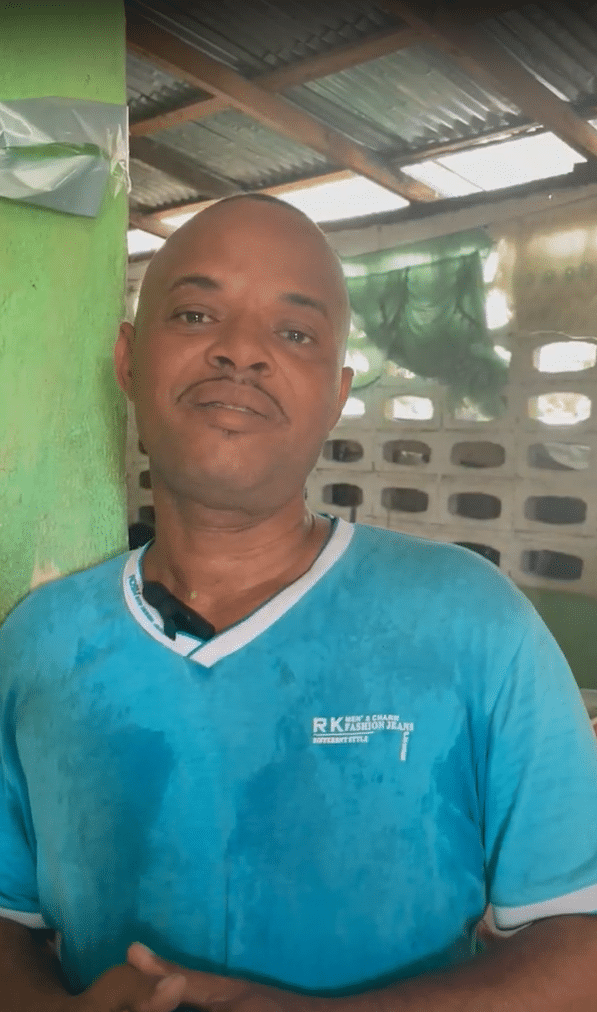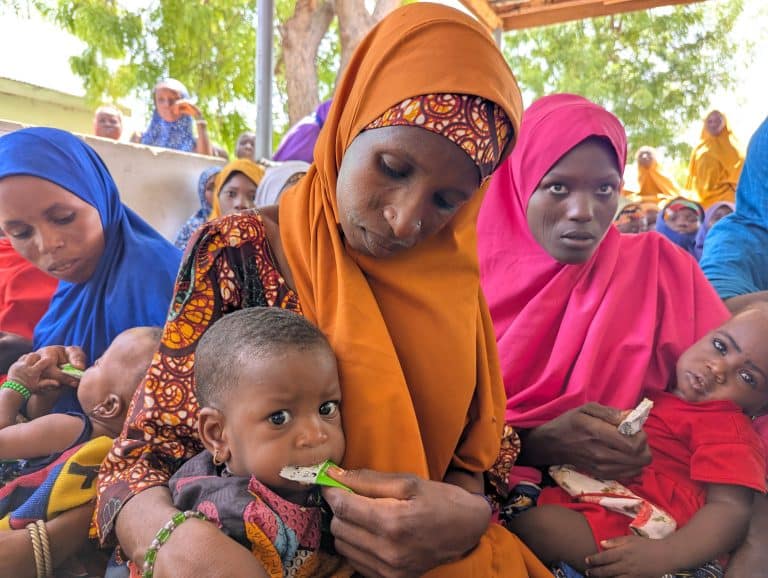Life at the International Early Church
In Port-au-Prince’s Delmas district, the pastor of the International Early Church has generously opened his doors to welcome internally displaced persons.
An ALIMA mobile clinic regularly visits this church to provide essential medical care. Patients are first identified and sorted based on their medical conditions, then directed to consultation spaces where they receive comprehensive medical care, including psychological support.
Each time, about sixty patients receive much-needed care that has been unavailable to them for months. Due to the violence, public health facilities are almost all dysfunctional, and private healthcare is often financially out of reach.
“The pastor told me, ‘My son, come to my house, you’re welcome here.'”
Roberto lost everything when “bandits” took over his house in early 2023. Since then, he has been living at the International Early Church, where he has become the site coordinator, helping to organize daily life.
“We have been coming since early 2023 because the bandits took over our territory, our homes, everything we owned. On January 21, at around 2 p.m., we heard gunshots. The armed bandits took our territories and told us: ‘We are taking control, no one can leave.’ At that point, the police failed, and the police station was destroyed and burned. They took my house, my car. I had to flee, leaving everything behind, including my Bible. I found myself on the streets with my daughter. We left without knowing where we were going.
I contacted the pastor to tell him that the armed bandits had evicted the people from my neighborhood. He said, “My son, come to my house, you’re welcome here.” I came here, but I didn’t know how long for. Thanks to the pastor, we found refuge here. Since that day, we have faced many calamities. NGOs used to bring us water and food, but now we are on our own. We live like in the jungle. But even the jungle has laws: the lion is the leader, but we are not animals.”

376 Families at Caroline Chauveau School
The internal displacement site at Caroline Chauveau School, located at the Champ de Mars in Port-au-Prince, accommodates about 500 people, from 376 families. Living conditions are extremely difficult: families are packed into the schoolyard, buildings, and even balconies due to lack of space.
In a single room, 25 to 30 people are crammed together. The president of the citizens’ committee managing this site explains that food supplies are starting to run out and that they need nutrition kits.
ALIMA regularly deploys mobile clinics to provide medical and mental health support. Children participate in art therapy workshops, where they draw their daily lives, revealing the traumas they suffer. Some children draw two houses and express their nostalgia for their former home as well as the impact displacement has had on their education and well-being.
The daily challenges these communities face highlight the need for solidarity and ongoing support.
Haiti: When Churches and Schools Become Refuges for Internally Displaced PersonsHaiti: When Churches and Schools Become Refuges for Internally Displaced Persons
Posted by ALIMA on Tuesday, Mai 5, 2024
Cover picture © Mélanie Blond/ALIMA





